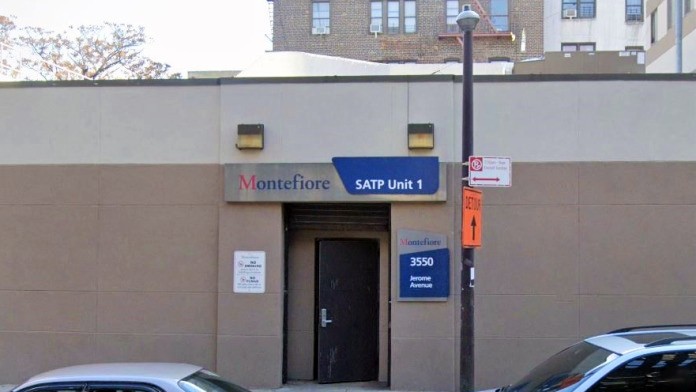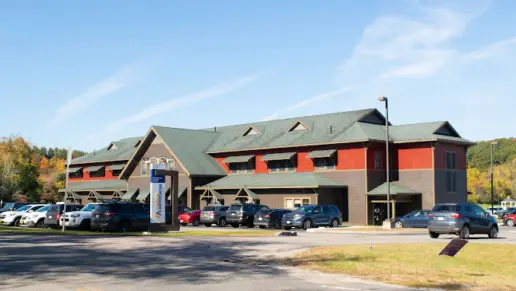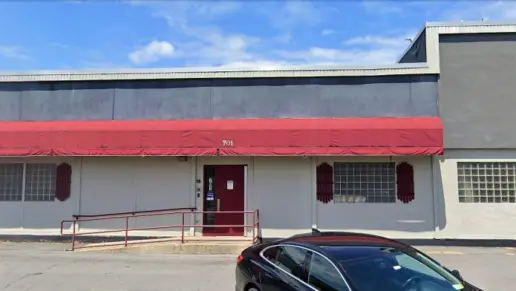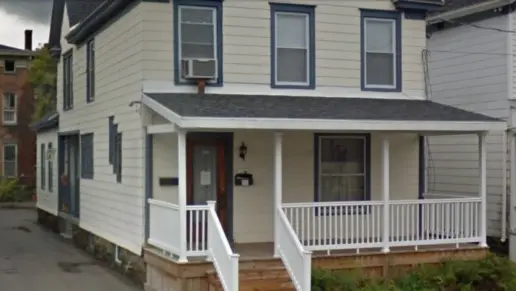About Montefiore Medical Center
Montefiore Medical Center is recognized as one of the best in the nation. Montefiore Medical Center - Jerome Avenue offers Methadone Treatment for those struggling with opioid addiction. Montefiore Medical Center - Jerome Avenue offers primary care services and HIV specialty care, as well as mental health, nutritional, and vocational services, all onsite.
Their outpatient program provides a flexible option for those seeking treatment as they live at home. Staff use multiple evidence-based approaches to assist clients, including individual, group, and family counseling, psychiatry, and psychotherapy. Clients also benefit from educational, nutritional, and vocational services. The center offers Community Reinforcement and Family Training (CRAFT) to help the families of people with addictions and include them in their recovery process.
In cases of severe addiction, MAT can alleviate withdrawal symptoms and facilitate ongoing recovery for patients. Clients have access to Suboxone MAT integrated with behavioral therapies to promote long-term recovery.
Montefiore Medical Center – Jerome Avenue may work with major insurance providers, like Humana, Magellan Health, Ambetter, BlueCross BlueShield, and Aetna, to cover treatment costs to some degree. Be sure to verify your insurance with your provider, as out-of-network benefits can vary.
Gallery

Location
Accepted Insurance
Other Forms of Payment
Private insurance refers to any kind of healthcare coverage that isn't from the state or federal government. This includes individual and family plans offered by an employer or purchased from the Insurance Marketplace. Every plan will have different requirements and out of pocket costs so be sure to get the full details before you start treatment.
Self-pay involves paying for treatment out of your own pocket. You can use savings or credit, get a personal loan, or receive help from family and friends to fund your treatment. If you don't have insurance or your insurance plan doesn't cover a specific program, self-pay can help ensure you still get the care you need.
Financial aid can take many forms. Centers may have grants or scholarships available to clients who meet eligibility requirements. Programs that receive SAMHSA grants may have financial aid available for those who need treatment as well. Grants and scholarships can help you pai for treatment without having to repay.
Sliding scale payments are based on a client's income and family size. The goal is to make treatment affordable to everyone. By taking these factors into account, addiction recovery care providers help ensure that your treatment does not become a financial burden to you or your family, eliminating one barrier to care.
Medicaid is a state based program that helps lower-income individuals and families pay for healthcare. Medicaid covers addiction treatment so those enrolled can use their coverage to pay for rehab. When a program accepts Medicaid the client often pays very little or nothing out of their own pocket.
Addiction Treatments
Levels of Care
Treatments
Alcohol rehab in New York can help individuals overcome alcoholism. This alcohol addiction is characterized by drinking alcohol compulsively, being unable to control how much you drink, and feeling anxious or stressed when you're not drinking. Treatment for alcohol addiction may involve brief intervention, an outpatient program, or inpatient alcohol rehab in New York. The main goal of treatment is to stop alcohol use to improve quality of life.
When you choose drug rehab in New York, you'll participate in a variety of treatments that are designed to help you live a drug-free lifestyle. Common methods of treatment include group, individual, and family counseling, medication management, nutrition, exercise, and management of co-occurring mental health disorders.
Dual-diagnosis addiction treatment programs in New York provide complete and holistic care for individuals with co-occurring substance use disorders and mental health conditions. These specialized programs are available on an inpatient and outpatient basis, depending on your individual needs. Addiction experts at these facilities can treat both conditions at the same time using a combination of evidence-based therapies, individual counseling, recovery groups, educational workshops, and family support.
Mental health and substance abuse treatment in New York is typically offered in a dual-diagnosis rehab, which provides comprehensive care designed to meet your specific needs. These programs are usually offered on an inpatient or outpatient basis, depending on whether you need detox. Their behavioral and medical experts combine evidence-based therapies like cognitive-behavioral therapy (CBT), educational groups, and medical support to help you achieve and sustain recovery.
Opioid rehabs specialize in supporting those recovering from opioid addiction. They treat those suffering from addiction to illegal opioids like heroin, as well as prescription drugs like oxycodone. These centers typically combine both physical as well as mental and emotional support to help stop addiction. Physical support often includes medical detox and subsequent medical support (including medication), and mental support includes in-depth therapy to address the underlying causes of addiction.
Programs


Clinical Services
Cognitive behavioral therapy (CBT) in New York is a short term therapeutic method used to treat substance use and mental health disorders. CBT typically lasts from five to 20 sessions, based on the individual's needs.
Group therapy is any therapeutic work that happens in a group (not one-on-one). There are a number of different group therapy modalities, including support groups, experiential therapy, psycho-education, and more. Group therapy involves treatment as well as processing interaction between group members.
In individual therapy, a patient meets one-on-one with a trained psychologist or counselor. Therapy is a pivotal part of effective substance abuse treatment, as it often covers root causes of addiction, including challenges faced by the patient in their social, family, and work/school life.
Family therapy helps individual members of the family unit navigate the complexities of addiction. Therapists provide you with the tools you need to improve communication skills and conflict resolution. When families work together, they can support their loved one's recovery and help to restore balance and harmony within the household.
Coping with day to day living is a challenge while in addiction recovery. Life skills training helps you learn how to manage daily tasks and deal with stress in healthy ways. This is key to long term recovery.
As you recover from addiction, eating the right foods will help you heal and build your health for long term sobriety. Nutrition therapy teaches you about the nutrition your body needs and how to eat the right foods to support your recovery.
In addiction treatment, recreational therapy focuses on engaging you in healthy activities to help reduce your cravings and improve your mental well being. You might engage in activities like cooking classes, hiking, group sports, or swimming as a constructive outlet for stress and emotions that help your recovery.
Amenities
-
Residential Setting
-
Private Setting
Contact Information
3544 Jerome Avenue
Bronx, NY 10467







